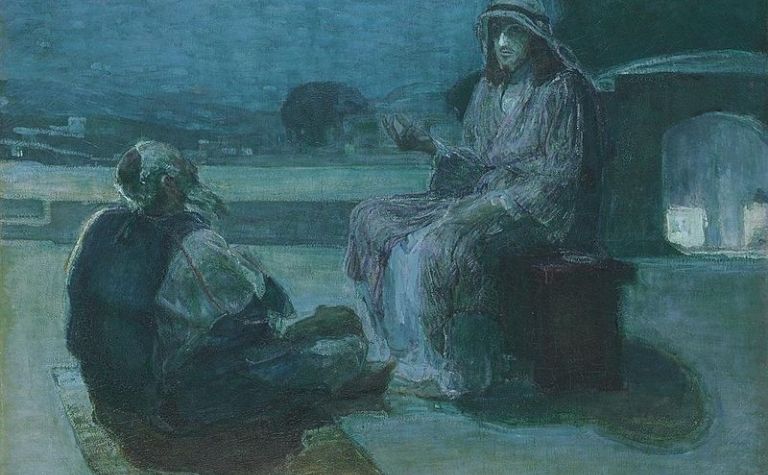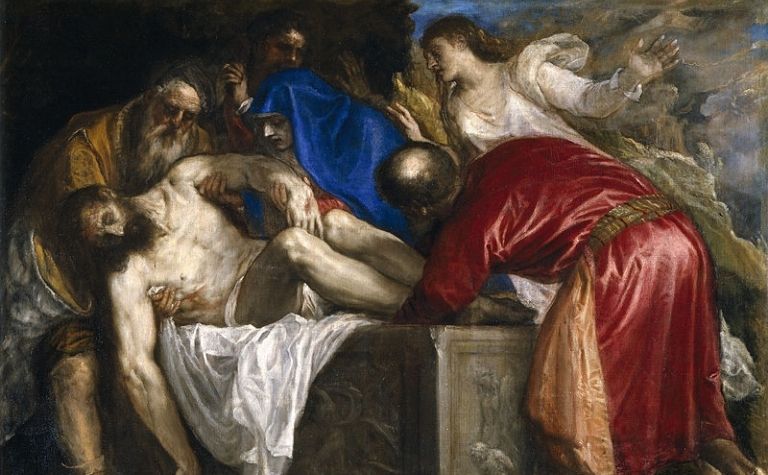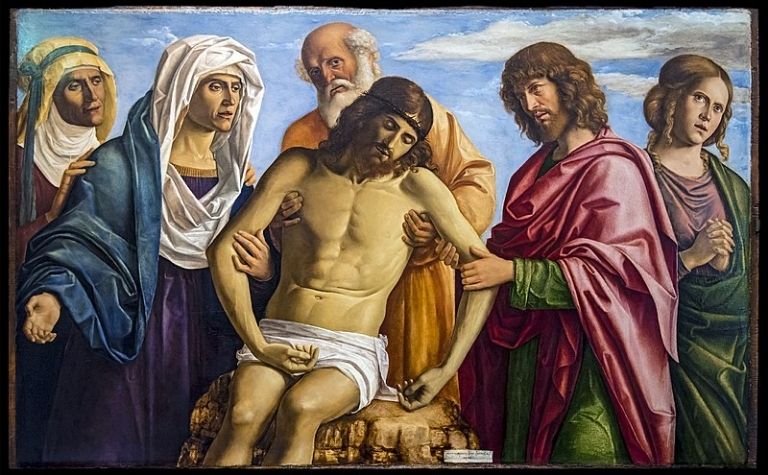Nicodemus, who was a Pharisee and a member of the Sanhedrin, is one of the most fascinating people in the Gospel of John. Bible readers first meet him when he has a secret, nighttime conversation with Jesus about being born again. Did Nicodemus become a follower of Jesus after that?
The details of Nicodemus’ story in the Gospel of John suggest that he became a follower of Jesus Christ. Later, in the fourth gospel, after his nighttime conversation with Jesus, Nicodemus publicly defends Jesus, which likely risked his reputation and position. He also helped anoint Jesus’ body.
What does John say about Nicodemus after his nighttime conversation with Jesus? When did Nicodemus advocate for Jesus publicly? What did Nicodemus do after the crucifixion? Keep reading to learn the answers to these questions and others.
Also see How Old Was Jesus When Started His Ministry? to learn more.

What does John say about Nicodemus?
John identifies Nicodemus in two important ways when he introduces him in his Gospel. John 3:1 reads, “Now there was a man of the Pharisees named Nicodemus, a ruler of the Jews.” John calls Nicodemus a Pharisee and a ruler of the Jews, which is a reference to the Sanhedrin.
What is a Pharisee? A Pharisee, which means “separatist,” was a member of a Jewish sect that was known for their devotion to the Law of Moses. They also abided by a strict moral law (Mark 7:3). Their chief rivals were the Sadduccees; yet, they opposed any teaching that wasn’t their own.
What was the Sanhedrin? The Sanhedrin was the highest legal court in first-century Judaism. According to the Gospels and Acts, the Sanhedrin was comprised of leading Jewish priests, elders, and teachers of the law.
Why does John mention that it was nighttime? Many scholars believe that Nicodemus was nervous to meet Jesus in the daytime in public for fear of the Jewish leaders (cf. 19:38). Others believe John’s reference to nighttime was just an insignificant historical detail.
John 3:2 reads, “This man came to Jesus by night and said to him, ‘Rabbi, we know that you are a teacher come from God, for no one can do these signs that you do unless God is with him.'” (ESV)
- Nicodemus called Jesus rabbi, which was a more respectful title than other Jewish leaders used for him.
- Nicodemus also acknowledged the signs that Jesus did, which other Jewish leaders mocked and denied.
Also see How Many Prophecies Did Jesus Fulfill? to learn more.
You must be born again
The conservation that follows is one of the most well-known stories in the Bible, and it includes perhaps the most famous verse in all of Scripture.
After Nicodemus mentions the signs, Jesus immediately tells him that he must be born again. At first, Nicoedums is confused (v. 3-8). “How can these things be?” he asks (v. 9). Jesus tells him that he is speaking of heavenly truths, not earthly ones. Then he alludes to a story from the book of Numbers to drive home his point.
“And as Moses lifted up the serpent in the wilderness, so must the Son of Man be lifted up, that whoever believes in him may have eternal life” (v. 14-15; cf. Num. 21:8). When Jesus said that the Son of Man must be lifted up, he was referring to his own death on the cross.
For God so loved the world
What Jesus says next is perhaps the most famous verse in the Bible: “For God so loved the world, that he gave his only Son, that whoever believes in him should not perish but have eternal life” (John 3:16). While Jesus’ teaching continues in the passage, Nicodemus isn’t mentioned again until later in the Gospel.
Nicodemus appears in John’s Gospel two more times. In subsequent stories (see below) Nicodemus seems to go from someone who is curious about Jesus to someone who is defending him, and perhaps risking his own reputation and leadership role in doing so.
Also see Is Jesus Coming Back Soon? to learn more.

Nicodemus stands up for Jesus
At the end of John chapter 7, after Jesus had taught about living water, those who heard him came to different conclusions about him. Some said he was a prophet; others said he was the Messiah. The Jewish leaders had a different perspective. They accuse the crowd of being deceived and ignorant of the law.
The Pharisees ask an important question: “Have any of the authorities or the Pharisees believed in him?” (v. 48) The Pharisees may have intended to be rhetorical, but then one of their own spoke up.
John 7:51-52 reads, “Nicodemus, who had gone to him before, and who was one of them, said to them, ‘Does our law judge a man without first giving him a hearing and learning what he does?’ They replied, ‘Are you from Galilee too? Search and see that no prophet arises from Galilee.'”
No longer under the veil of the darkness of night, Nicodemus advocates for Jesus in public. When the other Jewish leaders referenced the Law, Nicodemus cited its teachings about fair hearings right back to them.
New Testament scholar D.A. Carson writes that Nicodemus is advocating for Jesus but not directly. “When Nicodemus speaks up, it is not to defend Jesus directly but to raise a procedural point which, if observed, would work in his favor.” (Carson, The Gospel According to John, PNTC, p. 332)
While John doesn’t explicitly state that Nicodemus is a follower of Jesus at this point, Nicodemus is doing what a follower of Jesus would do in such a moment.
Also see Did Jesus Christ Wear A Dress? to learn more.

Nicodemus anoints Jesus’ body
After the crucifixion, John records that Joseph of Arimathea went to Pontius Pilate and asked to take Jesus’ body (v. 38). Like Nicodemus in chapter 3, Joseph did this at night in fear of the Jewish leaders.
Nicodemus helped Joseph prepare Jesus’ body for burial. John 19:39-40 reads, “Nicodemus also, who earlier had come to Jesus by night, came bringing a mixture of myrrh and aloes, about seventy-five pounds in weight. So they took the body of Jesus and bound it in linen cloths with the spices, as is the burial custom of the Jews.”
Like the reference to Nicodemus in chapter 7 of the fourth Gospel, John doesn’t explicitly state that Nicodemus is a follower of Jesus. However, Nicodemus is doing what a follower of Jesus would do in this passage.
In fact, when many of Jesus’ disciples were nowhere to be found after the crucifixion, Nicodemus was present, with great risk to his role and reputation, to give Jesus a proper burial.
Also see What Does It Mean To Be Crucified With Christ? to learn more.
Related Articles
In the field of Psychology, personality types are commonly defined as a collection of traits that are thought to occur consistently together in people's thinking, behavior, and emotions. Since Jesus...
The virgin Mary, the mother of Jesus, is one of the most fascinating people in the Bible. For 2,000 years, people of different eras and cultures have marveled at her faith in God. Mary's story in the...
